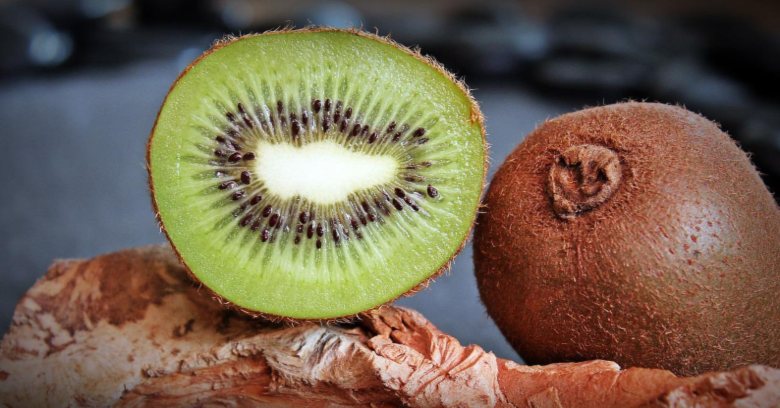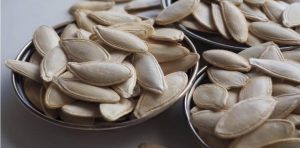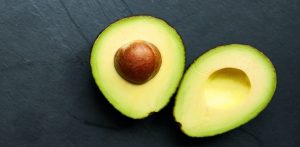Kiwifruit is an important source of various nutrients including; fibre, potassium, phosphorus, magnesium, calcium, iron, folate, vitamin C and certain carotenoids.
As the fruit is rich in many nutrients, it has been linked to several health benefits. Among the benefits kiwifruit has to offer, its cardioprotective (heart-protective) effects are getting particular attention.
Research tells us that kiwi fruit may help to lower blood pressure and reduce the risk for cardiovascular diseases.
In this article, we’ll cover the effects of eating kiwifruit on blood pressure.
What is High Blood Pressure?
High blood pressure is a common condition that threatens cardiovascular health according to the Centers for Disease Control and Prevention (CDC).
Blood pressure is an indicator of the resistance in blood vessel walls to blood flow and blood volume throughout the body.
Systolic blood pressure (the first number) is the pressure against the heartbeat, and diastolic blood pressure (the second number) is the pressure at rest.
Ideal blood pressure should be below 120/80 mmHg. If it is higher, you might be at risk of having hypertension.
The diagnosis of hypertension is made if the blood pressure readings are consistently higher than 130/80 mmHg, as per the latest guideline (2017) of the American College of Cardiology/American Heart Association.
How Does Kiwifruit Help Lower Blood Pressure?
One of the possible ways kiwifruit helps to lower blood pressure is by inhibiting the production of angiotensin–II.
Understanding the exact mechanism of angiotensin-II in affecting blood pressure may require medical knowledge and can be complicated for an average person.
Yet, if we could put it very simply; angiotensin-II is a protein hormone that increases blood pressure by narrowing down the blood vessels.
According to the Cleveland Clinic, high levels of angiotensin-II in the blood cause excess fluid retention and high blood pressure. One of the factors that lead to elevated angiotensin production is oxidative stress.
Research indicates that kiwifruit contains special components that inhibit the high production of angiotensin-II, therefore, the fruit may help to lower blood pressure.
Additionally, kiwifruit contains a substantial amount of potassium and lutein. Both potassium and lutein have been shown to be effective in nitric oxide synthesis, which is a substance known to widen blood vessels and regulate blood pressure. Also, the antioxidant properties of kiwifruit may increase the bioavailability of nitric oxide, helping to maintain normal blood pressure.
Studies on Kiwifruit and Blood Pressure
The majority of the studies that have evaluated kiwifruit’s effect on blood pressure found that eating kiwifruit can help lower blood pressure. That said, in some studies, researchers didn’t report a significant difference in blood pressure levels related to kiwi consumption.
Let’s glance at some of the studies in which researchers tested kiwifruit’s effect on BP.
A 2022 study found that eating 2 kiwi fruits before breakfast for over 7 weeks helped to lower systolic blood pressure without increasing blood metabolic parameters, such as fasting blood sugar, insulin level and uric acid, which is a waste product that can be harmful in elevated levels. The researchers based the beneficial effects of kiwi fruit on blood pressure on the fruit’s high vitamin C and Vitamin E content.
Another study conducted on male smokers investigated the effects of kiwi consumption and an antioxidant-rich diet on BP and undesired blood clotting in 3 different groups. The first group received 3 kiwis a day — the second group consumed an antioxidant-rich diet — the last group ate a normal diet (control group). The results showed that the kiwi group had more benefits to decrease high blood pressure as the subjects experienced about -10 mmHg systolic blood pressure and -9 mmHg diastolic blood pressure decrease. The antioxidant-rich diet lowered blood pressure only in hypertensive patients. This suggests that kiwifruit is relatively more effective at decreasing blood pressure in the general population. Furthermore, kiwi fruit showed beneficial effects on harmful blood clotting.
A study performed by a group of researchers at Oslo University showed that three kiwi fruits a day can decrease systolic and diastolic blood pressure while increasing the antioxidant capacity and upregulating the genes related to oxidative stress management and DNA repair.
However, a 2019 meta-analysis study — which shows the cumulative analysis of results obtained from 5 different studies — declared that kiwi fruit consumption leads to no significant difference in blood pressure.
How Many Kiwifruits Are Enough to Lower Blood Pressure?
According to the studies we analysed above, eating 2 or 3 kiwis a day should be enough to see kiwifruit’s beneficial effects in lowering blood pressure.
Does Eating Kiwi Skin Lower Blood Pressure?
Although unusual for many people, the skin of kiwi fruit is perfectly edible (as long as it is free from pesticides). Plus, the skin is high in antioxidants and contains a high concentration of nutrients.
It is shown that a special flour produced by the kiwi fruit skin contains a significant amount of antioxidant phenolic compounds, vitamin C, flavonoids and carotenoids. It is also a sustainable solution to reduce agro-industrial waste of kiwi fruit. This flour can be used as a supplement to enrich diets with dietary fibre and bioactive compounds, as well as antioxidants.
Also, kiwi fruit skin (Actinidia callosa peel) has antibacterial, anticancer and antioxidant effects. These benefits also make the extract of kiwi fruit skin an important therapeutic supplement.
However, there is no evidence up to date showing that eating kiwi fruit peel helps to lower blood pressure.
Other Potential Benefits of Kiwifruit
In addition to helping to lower blood pressure, eating kiwifruit may also provide the following benefits:
- Eating kiwifruit at night may help you fall and stay asleep
- Eating kiwis regularly may prevent and relieve constipation
- Kiwi fruit consumption may lower blood cholesterol and improve the blood lipids in patients with high cholesterol.
- Kiwis may help to deal with high inflammatory responses depending on obesity.
- Kiwi fruit may be protective against DNA damage and may promote DNA repair.
Summary
- Kiwifruit contains a variety of antioxidants and nutritional compositions.
- There are many scientific studies showing kiwifruit’s regulatory effects on blood pressure.
- This effect is largely attributed to the kiwifruit’s regulatory effects on the angiotensin and nitric oxide mechanisms.
- Thanks to its antioxidant and anti-inflammatory content, the fruit has effects on the reduction of oxidative stress, regulation of blood lipids, and protection from cancer.
Sevginur Akdas is a Clinical Dietitian, currently pursuing her PhD on metabolism, chronic diseases and clinical nutrition.
Sevginur has many publications with dozens of citations as a part of a research team.
She is also a professional health writer. Using her professional knowledge and exceptional research skills, she participated in academic book chapters.
Moreover, Sevginur wrote articles monthly as a columnist for Popular Science Magazine from 2017 to 2019.
To view the studies Sevginur has been involved in, you can click the following links: ResearchGate -- Google Scholar
Click here to see her full bio.





